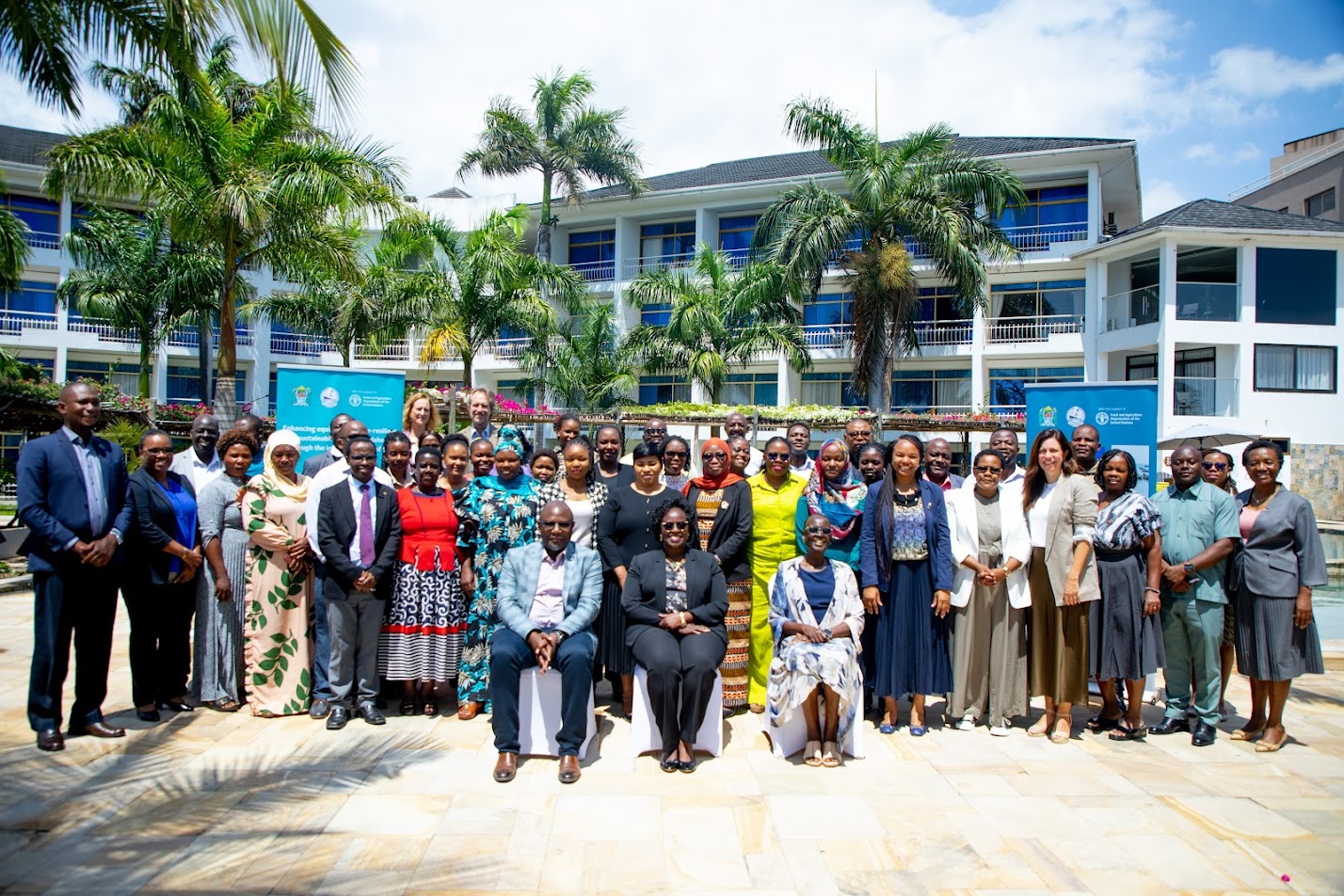Tanzania hosts consultative workshop on mainstreaming biodiversity in fisheries management

The Ministry of Livestock and Fisheries (MLF), in collaboration with the Food and Agriculture Organization of the United Nations (FAO), has convened a three-day consultative workshop in Dar es Salaam aimed at mainstreaming biodiversity into fisheries management in the context of the Kunming–Montreal Global Biodiversity Framework (GBF).
The workshop, held at the Giraffe Hotel from 7th to 9th October 2025, brought together over 50 participants, including representatives from government institutions, academia, research organizations, fishing communities, NGOs, and development partners. The meeting provided a platform to align national fisheries management practices with global biodiversity commitments while ensuring sustainable livelihoods and food security for communities dependent on aquatic resources.
In her opening remarks, Ms. Agnes Kisaka Meena, Permanent Secretary of the Ministry of Livestock and Fisheries, highlighted Tanzania’s commitment to conserving aquatic biodiversity as a cornerstone of sustainable fisheries development. She highlighted that biodiversity is vital to the fisheries sector, which supports over six million Tanzanians through direct and indirect employment. Ms. Meena emphasized the importance of collaborative approaches to address challenges such as illegal fishing, habitat degradation, and the impacts of climate change on aquatic ecosystems.
Speaking at the opening session, Dr. Nyabenyi Tipo, FAO Representative in Tanzania, reaffirmed FAO’s support to the Government of Tanzania in translating the GBF into actionable strategies within the fisheries sector. She noted that conserving biodiversity is not only an environmental priority but also a foundation for food security, nutrition, and economic resilience.
Dr. Tipo further highlighted the relevance of the Voluntary Guidelines for Securing Sustainable Small-Scale Fisheries in the Context of Food Security and Poverty Eradication (SSF Guidelines) — a global instrument dedicated to small-scale fisheries. Tanzania has demonstrated leadership in implementing the SSF Guidelines, being the first country to develop a National Plan of Action for Small-Scale Fisheries (NPoA–SSF), launched in 2021, which identifies biodiversity conservation as one of its key priority areas.
The workshop included presentations on relevant global and national frameworks, including with regards to the Right to Food and the human rights-based approach (HRBA) to fisheries and biodiversitiy conservation. A key activity on the second day of the workshop was for participants to discuss in smaller groups and identify priorities and activities for practically moving forward towards the implementation of the GBF and the related National Biodiversity Strategy and Action Plan (NBSAP 2025–2030). The inputs from these working group discussions were summarised into a roadmap including principles to take into consideration for this work as well as specific activities including with regards to:
- Inclusive marine spatial planning (MSP) and Other Effective area-based Conservation Measures (OECMs) in the context of collaborative fisheries management;
- Inventory and monitoring of threatened aquatic species covering the socioeconomic dimensions;
- Development of co-management plans, alternative livelihoods, guidelines for investments in fisheries and aquaculture;
- Gender response actions and and equitable participation in biodiversity-related opportunities, ensuring that women and marginalized groups are not left behind.
The final day of the meeting was attended by development partners from GIZ, the EU, the World Bank, and IUCN. The partners had the opportunity to share their ongoing work and explore potential areas for collaboration. It was noted that many of the priority areas align with the partners’ current initiatives on the ground. The partners also emphasized the importance of implementing the NBSAP in Tanzania.
Accordingly, the workshop forms part of Tanzania’s broader efforts to implement the NBSAP, aiming to enhance the conservation and sustainable use of aquatic biodiversity in alignment with the GBF, the SSF Guidelines, and national development priorities. The workshop was a first opportunity for fisheries and environment government agencies, researchers and communities to jointly discuss alignment of priorities across sectors taking the Right to food and the livelihoods of small-scale fishing communities into account. Concrete actions were identified that will be taken forward for implementation through multistakeholder collaboration and partnerships.
Learn more:
